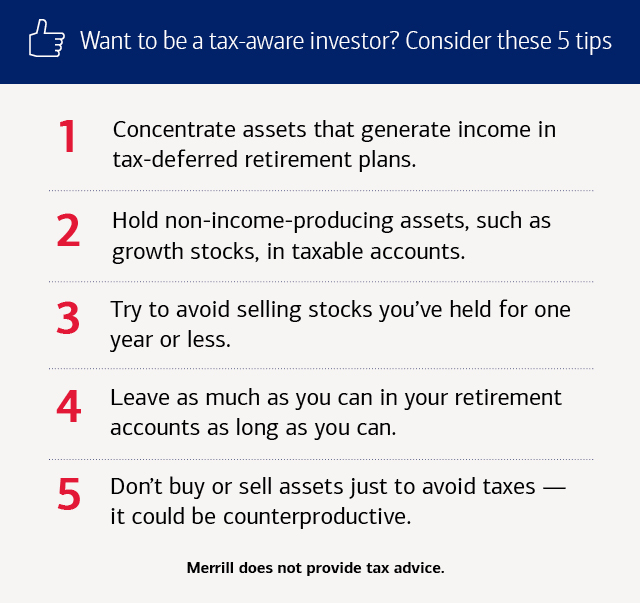* As a CPA and shareholder at WilkinGuttenplan P.C., Vinay Navani is not affiliated with Merrill. Opinions and views expressed are his, do not necessarily reflect the opinions and views of Merrill or any of its affiliates, and are subject to change without notice. Merrill, its affiliates and financial advisors do not provide legal, tax or accounting advice. You should consult your legal and/or tax advisors before making any financial decisions.
1 The required beginning date for RMDs is generally April 1 of the year after you turn age 73. You are required to take an RMD by December 31 each year after that. If you delay your first RMD until April 1 in the year after you turn 73, you will be required to take two RMDs in that year. You may be subject to additional taxes if RMDs are missed. Please see your tax advisor regarding your specific situation.
2 A 3.8% net investment income tax may also apply.
Merrill, its affiliates, and financial advisors do not provide legal, tax, or accounting advice. You should consult your legal and/or tax advisors before making any financial decisions.



